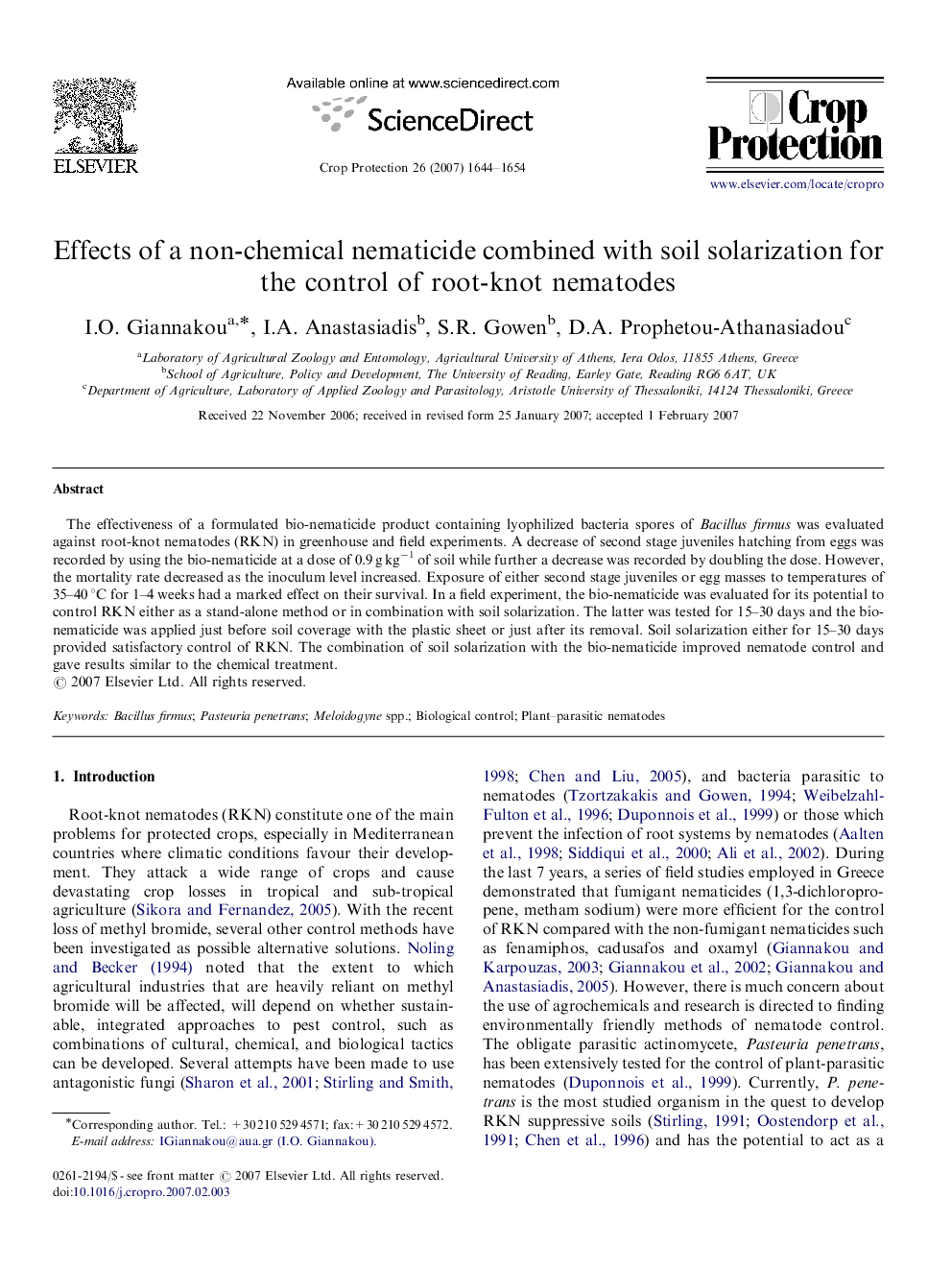| Article ID | Journal | Published Year | Pages | File Type |
|---|---|---|---|---|
| 4507030 | Crop Protection | 2007 | 11 Pages |
The effectiveness of a formulated bio-nematicide product containing lyophilized bacteria spores of Bacillus firmus was evaluated against root-knot nematodes (RKN) in greenhouse and field experiments. A decrease of second stage juveniles hatching from eggs was recorded by using the bio-nematicide at a dose of 0.9 g kg−1 of soil while further a decrease was recorded by doubling the dose. However, the mortality rate decreased as the inoculum level increased. Exposure of either second stage juveniles or egg masses to temperatures of 35–40 °C for 1–4 weeks had a marked effect on their survival. In a field experiment, the bio-nematicide was evaluated for its potential to control RKN either as a stand-alone method or in combination with soil solarization. The latter was tested for 15–30 days and the bio-nematicide was applied just before soil coverage with the plastic sheet or just after its removal. Soil solarization either for 15–30 days provided satisfactory control of RKN. The combination of soil solarization with the bio-nematicide improved nematode control and gave results similar to the chemical treatment.
